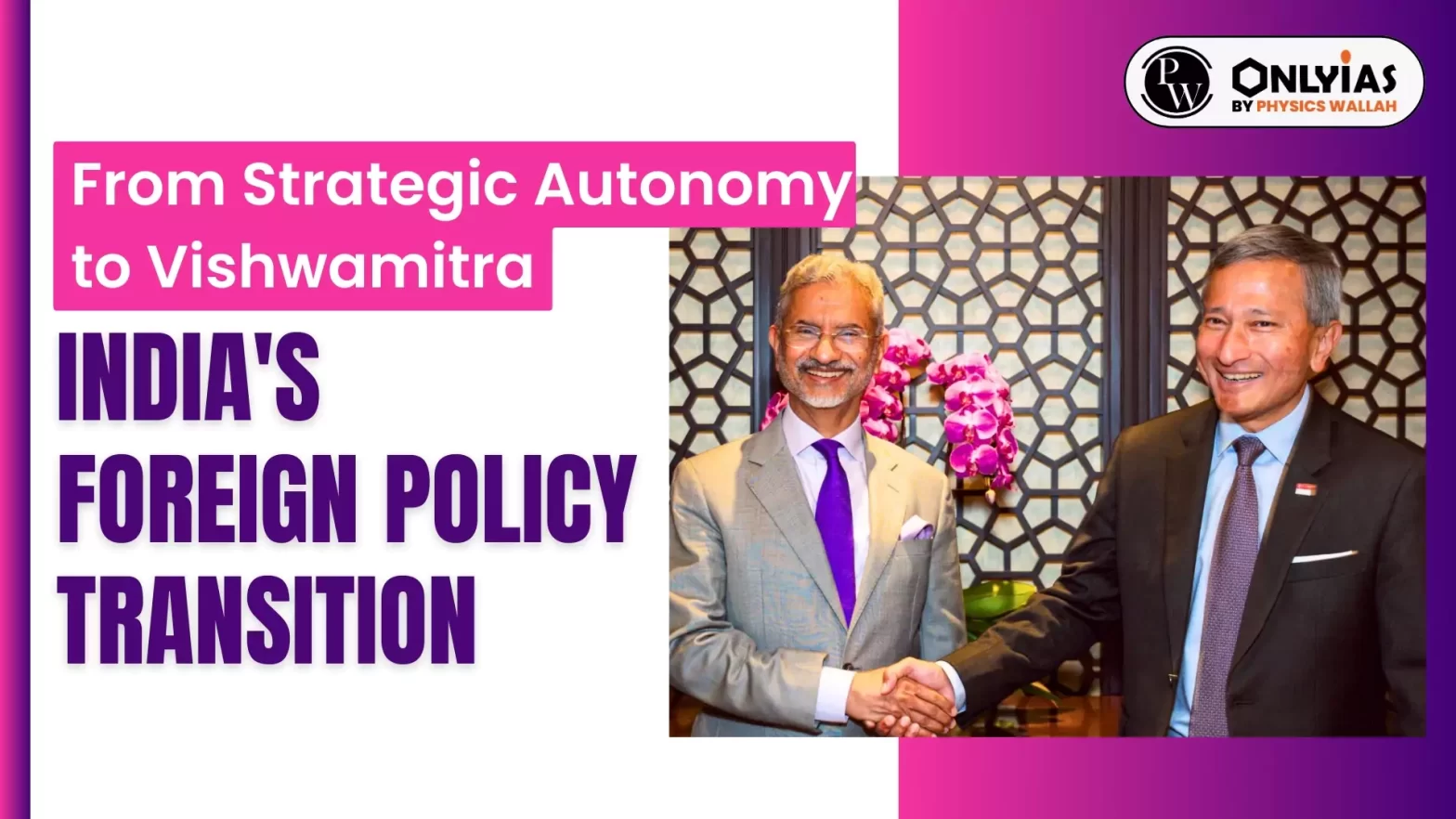Context
Over the past decade, there has been a notable evolution in India’s diplomatic vocabulary, representing a significant change in its foreign policy approach.
India’s Shift from Strategic Autonomy to Vishwamitra
-
Political Polarization as Impeding Factors:
- The political polarisation slows this process causing a delay in the development of a new and universally embraced diplomatic vocabulary crucial for India’s rise on the global stage.
-
Incongruence of Idea:
- The idea of “strategic autonomy” seems contradictory when one considers that India is the world’s third-largest economy, with the third-largest armed forces and the fourth-largest defense budget.
- This concept originates from the period of post-colonial insecurity and the persistent anxiety regarding being coerced into undesired decisions by dominant global powers.
-
Limits of Strategic Autonomy for Major Powers:
- As a significant power in its own right, the scope of autonomy naturally broadens.
- Even so, there is no such thing as “absolute strategic autonomy” as even the world’s most powerful nation, the US, does not have total freedom of action.
-
Developmental Challenges for India:
- Although the aggregate size of its economy gives India some of the critical attributes of a major power, its low per capita income underlines the massive developmental challenges at home.
-
Decline in Strategic Autonomy Reference:
-
- It has been replaced by references to India as a “leading power”, “Vishwamitra”, “net security provider”, “first responder” to regional crises, “like-minded coalitions”, “minilateralism”, “inter-operability”, and “global public goods”.
Way Forward
-
Shifting Focus:
- India needs to contribute effectively to securing the region and governing the world.
- Historically, great powers have shaped the nature of war and peace and international institutions to limit the former and promote the latter.
- Great powers also set the rules for international commerce, manage global commons, regulate the emergence of new technologies and manage their consequences.
-
Shaping Global Order:
-
- India’s growing aggregate power also brings greater responsibilities and opportunities to shape and maintain regional and global order.
Conclusion
India must balance its aspirations for global leadership with its commitment to addressing domestic developmental challenges, thus ensuring a sustainable and inclusive path towards a brighter future for its citizens and the world at large.
Also Read: Vision India@2047
![]() 29 Mar 2024
29 Mar 2024
